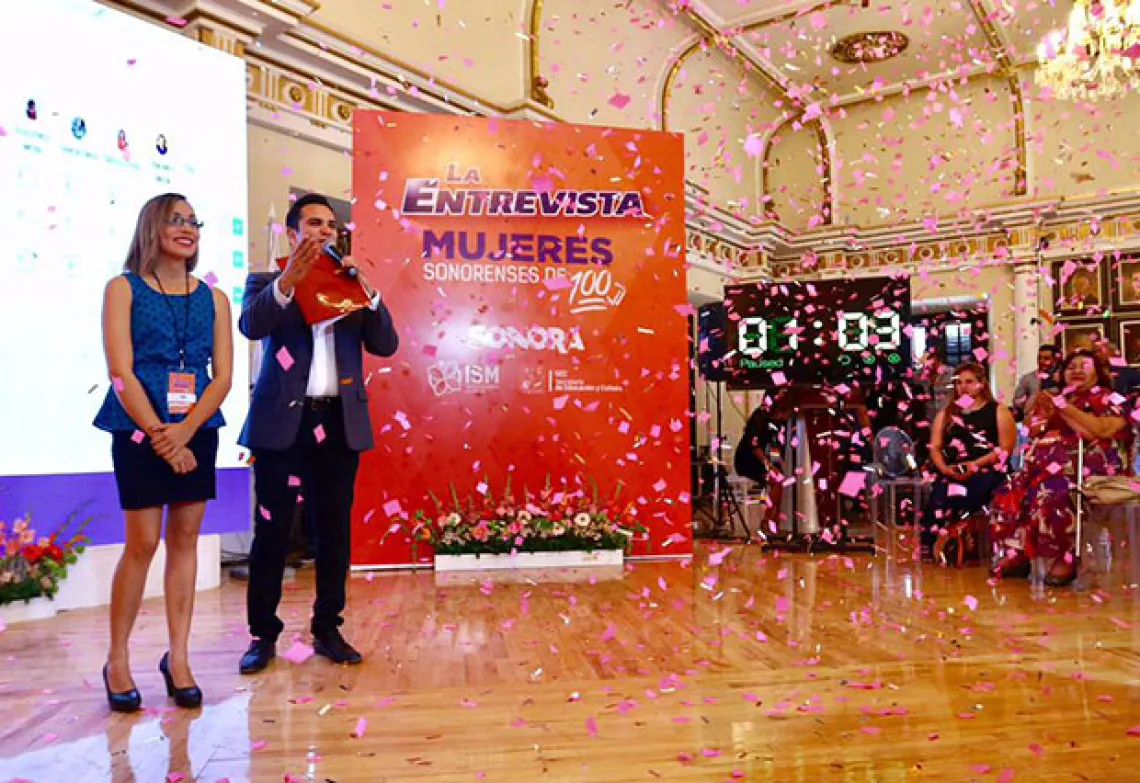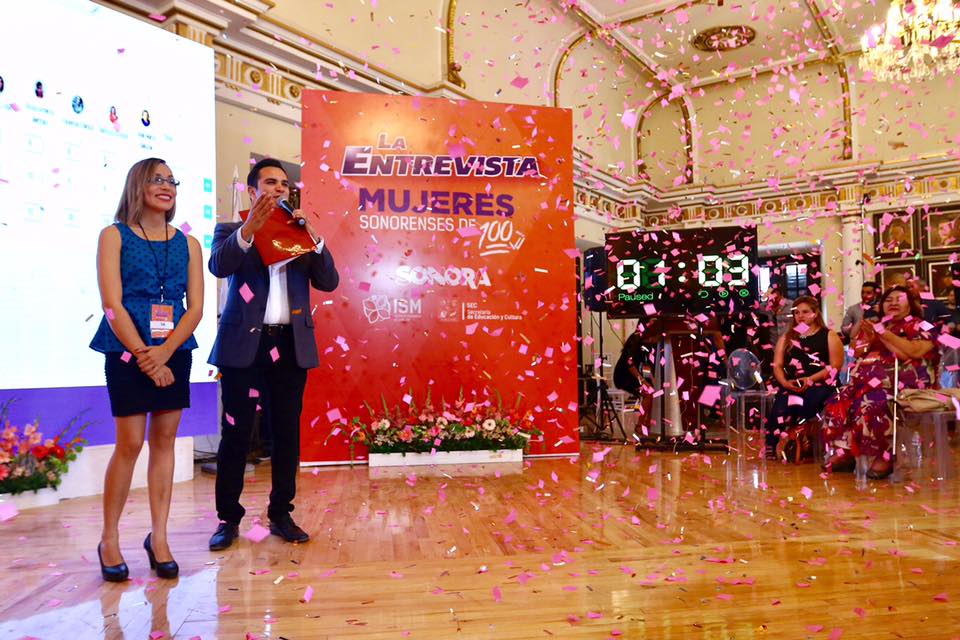Mexican Government Honors Alumna of “Study Arizona: Short-Term” Program

Karla Patricia Garcia is not only a recognized scholar and professional; she is also deeply committed to her community and providing a sustainable future for its residents.
A native of Sonora, Garcia participated in the University of Arizona’s Summer Program “A Learning Research Experience” twice before returning to the UA to pursue her master’s degree in Plant Science. Now a partner at Soluciones Verdes, an environmental sustainability company in Hermosillo, the Mexican Government is recognizing her commitment to responsible development.
The Secretary of Education and Culture recently selected Garcia as a Mujeres Sonorenses de 100, a prestigious award for women who significantly contribute to the economic and social development of the region. More than 3,000 women were nominated for the honor, but only 100 made it to the final stage.
Garcia credits her training in the UA Summer Program “A Learning Research Experience”— the UA’s largest “Study Arizona: Short-Term Program”— for giving her the tools to eventually earn the award. “Study Arizona: Short-Term Programs” offer a variety of learning experiences at the UA for international students ranging from one to 10 weeks, giving students the opportunity to experience a field of study from a new perspective.
“The summer program helped me gain the information and experience to apply to a grad program at the UA. It was the first step toward reaching my professional goals because I was introduced to the field I am working in now,” said Garcia.
Previously called the “Latin American Summer Research Program,” the newly-dubbed “Learning Research Experience” is expanding opportunities for international students hoping to jumpstart their academic careers at a first-class research institution.
Developed and organized by the UA Office of Global Initiatives, the program caters to inbound students who are interested in pursuing graduate studies in the U.S. The group spends 10 weeks participating in faculty-mentored research, workshops, and fieldtrips at the UA as they explore life as a scientific professional. At the culmination of the program, students deliver a poster, abstract, and oral presentation of their research project.
“I got to study at the UA where I met professors and gained an excellent knowledge in controlled environment agriculture under the direction of Dr. Chieri Kubota in the School of Plant Sciences,” Garcia explained. “This helped me with my ultimate goal to work on new projects in Sonora to make agriculture more sustainable.”
The director of the “Learning Research Experience,” Nadia Alvarez Mexia, Ph.D., clearly identified Garcia as an exceptional student. “Karla participated in the experience not once, but twice— both times sponsored by her home institution, Universidad de Sonora. Karla was later accepted into a master’s degree program at the UA where she was recognized by the International Society for Horticultural Science and UNISON— her home institution— for her research project and skills,” said Alvarez Mexia.
 As her academic career suggests, Garcia is serious about the scientific community, but she also understands the need for social change to incite progress. The Mujeres Sonorenses de 100 award promotes women who go beyond business to help other women and children in their communities.
As her academic career suggests, Garcia is serious about the scientific community, but she also understands the need for social change to incite progress. The Mujeres Sonorenses de 100 award promotes women who go beyond business to help other women and children in their communities.
“Back in Mexico, Karla is volunteering to teach children about their local environment. She is also an opera singer and spends time in Hermosillo hospitals to bring happiness to little patients dealing with cancer treatment,” said Alvarez Mexia.
Garcia had the opportunity to develop concrete solutions for her community as a result of the Mujeres Sonorenses de 100 honor. This May, the 100 award recipients participated in a women’s empowerment seminar in Washington, D.C. designed to strengthen areas directly linked to emerging industries in Sonora.
“I hope to receive tools to help fund projects that promote saving water,” said Garcia. “In Sonora, we have serious issues related to water deficit, and agriculture is one of the most important activities in the region; there is the need to implement new techniques such as hydroponics in order to reduce water use.”
Garcia’s team at the seminar in Washington, D.C. created a project that was selected for potential sponsorship by the Mexican Government. “I really have to give credit to the preparation I received at the UA which helped my team strengthen the structure and objectivity of the project,” said Garcia.
Alvarez Mexia places an emphasis on objective experimentation and graduate school preparation as part of the “Learning Research Experience,” and points to Garcia as a perfect example of fulfilling the program’s potential.
“Karla is a great example of a young professional who combines her research career with social work. She is a great representative of young women who balance a professional career with community engagement.”
Nearly 250 students have taken part in the UA Summer Program “A Learning Research Experience,” more than 20 of whom are now pursuing doctoral studies at the UA. Students from more than 70 universities have participated, including the following institutions: UNAM Queretaro and Mexico City, La Salle Mexico City, UNISON, UESonora, UJATabasco, UDO, UAS, UGuadalajara, UGuanajuato, Universidad Lamar, ITESCA, UACJ, and IIE & Science Without Borders (Brazil).
At the end of the program, students receive a diploma, as well as a transcript of their grades.

